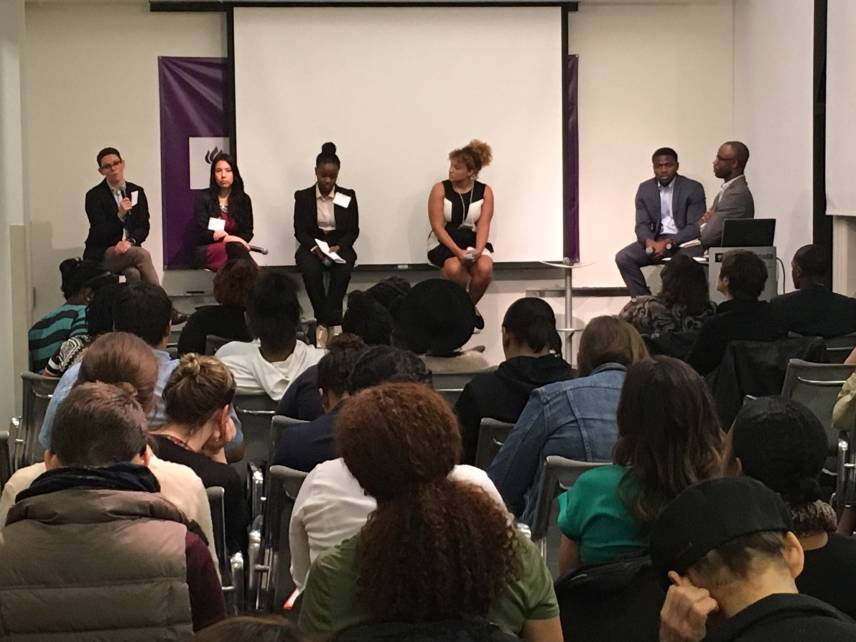Panel Explores School-to-Prison Pipeline

On November 4, Wagner Education Policy Students Association (WEPSA) brought forward an issue that has yet to make the political agenda. “From Behind Books to Behind Bars” brought together leading advocates against the school-to-prison pipeline, a complex phenomenon that funnels our youth, particularly minorities, into the prison system. The event’s panelists brought an array of expertise, backgrounds, and unique perspectives on the unjust criminalization of minority youth, not only in New York City, but across the nation. The panel included advocates who have dedicated their lives to criminal justice reform and education reform, working throughout the city with organizations such as the Children's Defense Fund, ROADS Charter High School 2 in the Bronx, Research Alliance for New York City Schools, and Girls for Gender Equity.
Black boys are three times more likely to be suspended or expelled for typical adolescent behavior compared to their white peers; black girls are six times more likely than their white peers and their black male peers. The complexities of the school-to-prion pipeline cannot be solved with a one-size-fits-all solution; however, the panelists did agree that we need better-trained teachers, principals, guidance counselors, teachers’ aides, and social workers in schools. While this may not solve the problem, it can mitigate the detrimental effects of the school-to-prison pipeline. To attain administrative reform as well as overall reform, we must continue the discussion to raise awareness about the institutional biases that limit the allocation of resources into underserved schools and communities.
WEPSA collaborated with the Black Student Association, the Association of Latin@s and Allies in Public Service, and Students for Criminal Justice Reform on the event.